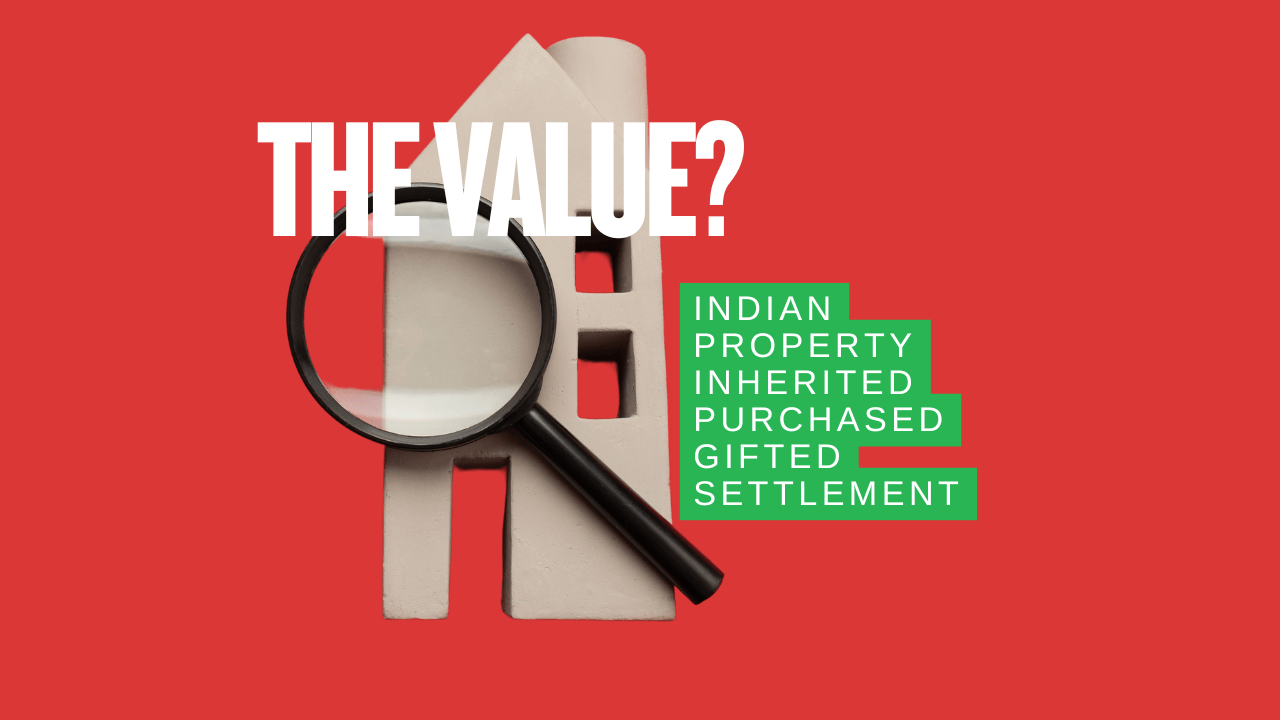Following on from our last segment – Repatriation of sale proceeds from sold property in India. We now look at another area of property in India, specifically; buying property – as an Overseas Indian.
Broadly speaking, from our previous segments on immovable property in India for NRI OCI, there are some differences in aspects of property. For example, a person who is a Non Resident/Non Citizen cannot buy agricultural land in India (subject to RBI rules).
Indeed, despite the number of Overseas Indians considering selling their property in India, there are a large number that wish to make further investments in India. Albeit this is not the only reason why property is sought after in India by Overseas Indians.
This article provides an overview of buying Indian property in India.
Can You Buy Property In India As An Overseas Indian
As an Overseas Indian you can buy immovable property in India.
However under FEMA No.21/2000-RB of May/3/2000 (RBI), you cannot buy agricultural land, a plantation property or a farmhouse. This applies to; NRI OCI (PIO).
What does that mean? Quite simply, you can by way of purchase acquire property. For example, a house, apartment, plot etc which is classified as immovable property or an immovable asset as per Indian law.
Taking into consideration – what you should know as a possible buyer contemplating buying property in India.

As an overall consensus, to begin with, some of the reasons why you maybe seeking property investment in India;
Common Reasons To Buy Indian Property
Above all a vast majority of Overseas Indians keep a multi-generational approach in mind. Despite its traditional implication, the Indian family system is a successful modal.
Family fans into great-grandparents, grandparents, adults, grand children and sometimes aunts and uncles. Typically, this generational approach includes property portfolios due to family set up and expansions.
It is also understood that a type of repurposing effect plays part in the multi-generational approach when property is purchased.
Therefore, it’s often the case that, property serves a multi -generational purpose:
- Secondary home/family home relocation.
- In support of family members in various age groups.
- Real estate investment with expectation of resale.
- Real estate investment – rental income.
- Set up business and relocate back to India
- Retirement property along with varied perks.
- Joint property investment
- Surplus money investment in sought after locations.
- Holiday homes.
- Commercial Investment, rental etc
To provide a more conducive platform for Overseas Indians – India, the Indian Government over the years has adapted initiatives and policies in support.
For example; from 1990’s-2000’s, it has implemented an investment-led model that included FDI and Tax Friendly Remittances.
Today, a more segmented approach has been rolled out which encourages opportunities as per current affairs.
Indian Property Affordability
Illustratively, as per the Bank for International Settlements residential property price statistics Q1/22, it has been suggested that, among the G20 economies, real prices have risen by around 60% for India as well as other countries.
Depending on where you consider buying property in India, you can still find a diverse comparison of availability.
There are a number of opportunities for a buyer. Of course, location, size and your reason to buy determine your interest in property buying.
Further, a number of Overseas Indians purchase existing properties and repurpose them to their requirements.
Examples
Affordability; property in India may not be incubated from year on year value change however in comparison to other countries it still offers a number of options.
- For example, in the popular NW states such as Punjab, a well appointed one bedroom apartment can be purchased from RS. 60 Lakh onward.
- You can also purchase a residential home from RS. 70 Lakh in parts of Punjab (as an example).
- In the SW of India, such as Goa from RS. 70 Lakh onward. More sought after areas can begin from RS. 2-6 Cr in larger cities such as New Delhi. These are illustrations only and are dependent on a number of factors, such as location, size, spec and so on.
The next section provides an overview of property payments when buying Indian property.

Guidelines: Property Payments For Overseas Indian
(FEMA) empowers the Reserve Bank to frame regulations to prohibit, restrict or regulate the acquisition or transfer of immovable property in India by certain persons resident outside India.
Below we look at the guidelines around payment methods to buy property in India as an Overseas Indian.
Payment for Acquisition of Immovable Property
A) If you are an NRI (Non Resident Indian)
An Indian Citizen that resides abroad for more than the defined period in a given year, you can make payment for acquisition of immovable property in the following ways;
- Funds received in India through normal banking channels by way of inward remittance from any place outside India or by debit to his NRE / FCNR(B) / NRO account.
- Such payments cannot be made either by traveller’s cheque or by foreign currency notes or by other mode except those specifically mentioned above.
A NRI who has purchased residential / commercial property under “general permission” is not required to file any documents with the Reserve Bank.
B) If you are a PIO (Person of Indian Origin)
A Foreign Citizen residing outside of India, who is of Indian Origin, you can make payment for acquisition of immovable property in the following ways;
- By way of purchase out of funds received by inward remittance through normal banking channels or by debit to his NRE / FCNR(B) / NRO account.
- Such payments cannot be made either by traveller’s cheque or by foreign currency notes or by other mode other than those specifically mentioned above.
A PIO who has purchased residential / commercial property under the general permission, is not required to file any documents with the Reserve Bank.
C) If you are a Foreign Citizen not of Indian Origin
As a Foreign National of Non-Indian Origin (resident outside of India) you cannot acquire any immovable property in India. You can only acquire property by way of inheritance from a person who was resident in India.
Subsequently, documentary evidence would be required for the same as per the RBI (FEMA) protocol.
Yet, you can acquire or transfer immovable property in India, on lease, not exceeding five years without the prior permission of the Reserve Bank.
You would follow the RBI (FEMA) payment guidelines and proceed accordingly.

D) Restricted Countries
There are some restrictions for Citizens of other countries in relation to immovable property in India.
Individuals under those categories of country in most cases where approved would require the RBI’s prior approval for any such activity. Without which any property related activity cannot be undertaken for restricted country citizens.
Types of Documents Required To Buy Indian Property
A few examples of the types of documents that you may require to buy property in India.
Some of these can be; Sale Deed, General Power of Attorney, No Objection Certificate, Sale Agreement. POA, Allotment letter, Possession Letter, Khata Certificate – which is considered as one of the most important.
Payment receipts, Property tax receipts, Encumbrance Certificate. As an Overseas Indian, other formalities such as an NRO/NRE account. Pan Card, proof of identity and so on.
The type of documents required when you buy property in India will vary according to the type of property purchased to some extent.
Key documents such as; Sale Deed, Sale Agreement, Khata Certificate, Property Tax Receipt would apply in most cases.
Popular Places To Purchase Property In India
It varies but across the board and in comparison to other locations, Hyderabad, Bengaluru, Mumbai seem to be at the top. Following on from them, parts of N/NW India such as Gurgaon, Noida, Chandigarh, Jalandhar.
Other areas of SW such as Goa as well as other upcoming locations.
This is an informational post only and does not replace professional advice. Seek the advice of a professional.
Frequently Asked Questions
It is a regulatory Act (1999), specifically, The Foreign Exchange Management Act, that enables the RBI to frame regulations relating to prohibit, restrict or regulate the acquisition or transfer of immovable property in India by certain persons residents outside India.
Yes, tax would be payable. However, it may vary depending on when you bought it and sale date ie; Short/Long term capital Gains Tax rates (TDS)
No you cannot. You would need to follow the RBI guidelines on acceptable modes of payments.
Related Links
- Transfer of property in India
- Indian Property disputes
- Sell property in India
- Power of Attorney Service
We can also assist with the following NRI Services in London:
- Illegal occupation of property in India
- Family Settlements and partition of NRI Indian property
- Ancestral real estate and inheritance advisory under Indian law
- NRI Property Transfer
- Possession of NRI Property
- Recovery of NRI money under Indian Law
- NRI Succession Certificate in India
- Injunction against alienation of NRI property in India
- Developer Claims under the Consumer Protection Act in India
- NRI property disputes
- Visas to India
- Indian Power of Attorney
- NRI PAN Card
- Overseas Citizenship of India (OCI)
- Inter-Country Adoption
- Divorce proceedings under Indian Law for parties settled abroad






